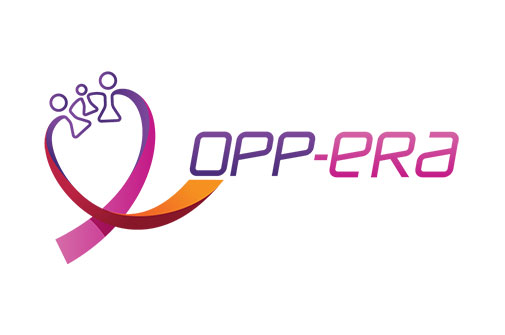OPP-ERA project in Côte d'Ivoire: Major strides in care for HIV/AIDS patients
Significant improvement in access to the viral load via open and polyvalent platforms
Viral load tests are the only way to verify the success of HIV treatment. Difficulties to access the viral load undermine global efforts to treat persons living with HIV. In 2014, UNAIDS set the “90x90X90” target for 2020, whereby 90% of all persons living with HIV will know their HIV status, 90% of people with diagnosed HIV infection will have started HIV treatment and 90% of people treated will have an undetectable viral load, proving an effective treatment has been maintained.
The OPP-ERA project fits in with these objectives, by providing access to an innovative technology based on the use of open polyvalent platforms. It has been implemented in Burundi, Cameroon, Côte d’Ivoire and Guinea since March 2013 and promotes access to an innovative open system of molecular biology techniques for laboratories which makes it possible to measure the HIV viral load.
“Coverage for viral load tests was almost non-existent in Côte d’Ivoire before the OPP-ERA project. According to the national strategic plan for 2016-2020 of the National Program to Fight Against AIDS, only 14% of people infected with HIV and under antiretroviral treatment benefited from a viral load test in 2014. Today, it is estimated that 66% of patients have benefited from this test”, explains Jean Claude Agaman, coordinator of the OPP-ERA project in Côte d’Ivoire.
 Watch the webdocumentary about OPP-ERA: webdoc-chargevirale.solthis.org
Watch the webdocumentary about OPP-ERA: webdoc-chargevirale.solthis.org
The achievements of the OPP-ERA project in Côte d’Ivoire
In Côte d'Ivoire, the OPP-ERA project has been implemented by Expertise France, through its local coordination office in Abidjan, in partnership with the Ministry of Health and Public Hygiene, scientific partners and PEPFAR.
The OPP-ERA project has equipped three laboratories with polyvalent platforms: the Diagnosis and Research Centre on AIDS and Other Infectious Diseases (CeDReS) in Treichville, the Centre for Care, Research and Training (CePReF) in Yopougon, and the Daloa Regional Hospital Centre.
In the context of the OPP-ERA project, over 71,000 viral load tests were conducted in Côte d’Ivoire between 2014 and 2018. Since 2016, CePReF has conducted 11,661 viral load tests, including 9,718 undetectable viral loads (83.3%). CeDReS has conducted 35,822 viral load tests, including 28,508 undetectable (79.5%).
The OPP-ERA project has also trained laboratory staff and promoted exchanges of experience between the project’s countries of operation (Guinea, Burundi, Cameroon and Côte d’Ivoire): 7 people from CeDReS and CePreF have been trained, including 5 qualified to conduct the viral load test on the open polyvalent platform (OPP) and an accreditation process for laboratories is underway. Furthermore, 2 people from the CHR in Daloa, 5 Burundians and 3 Guineans have been trained at CEDRES.
This project will end in the country on 31 July 2019 and the last activities implemented aim to ensure the transition and the takeover of the activities by the National Programme to Fight Against Aids, with support from the Global Fund and technical assistance from the different departments.
Financed by UNITAID, the OPP-ERA project is cofinanced by a consortium of French partners: Solthis (Therapeutic Solidarity and Initiatives for Health), the leader and responsible for implementation in Guinea; ANRS, responsible for the scientific direction and the promotion of results; Expertise France, responsible for implementation in Côte d’Ivoire and Cameroon; and Sidaction, responsible for implementation in Burundi.
 Find out more about the OPP-ERA project: opp-era.org
Find out more about the OPP-ERA project: opp-era.org


